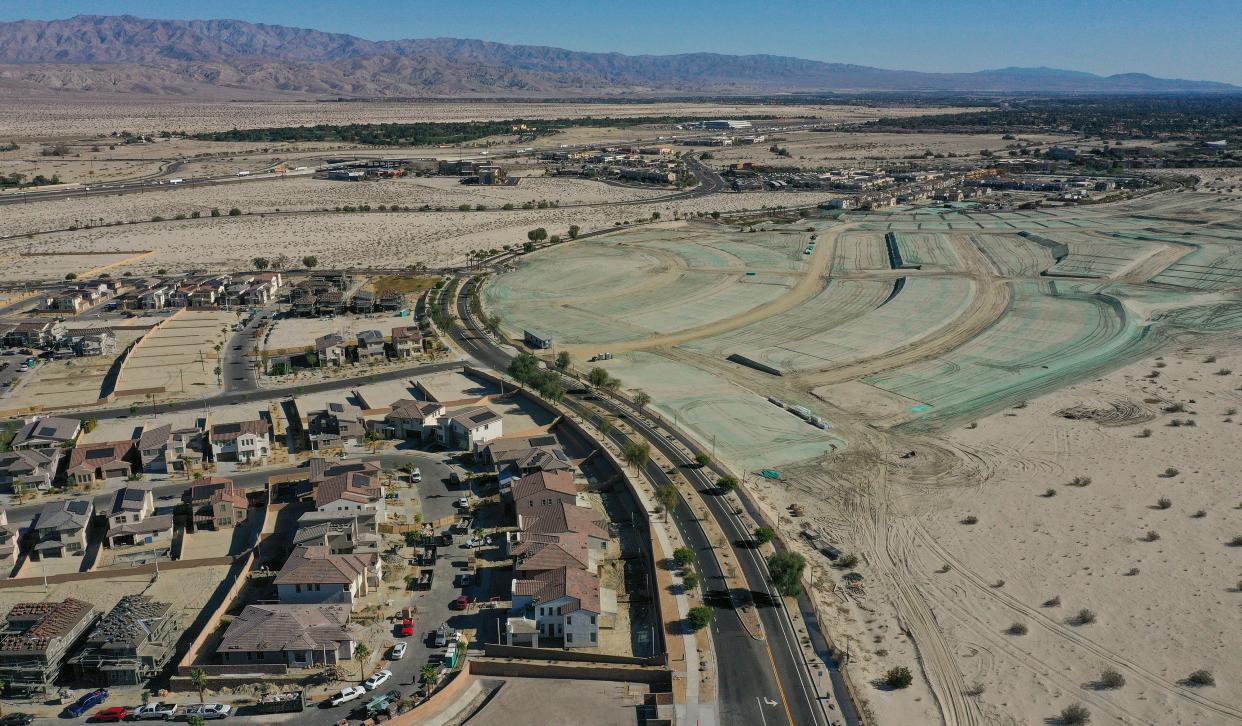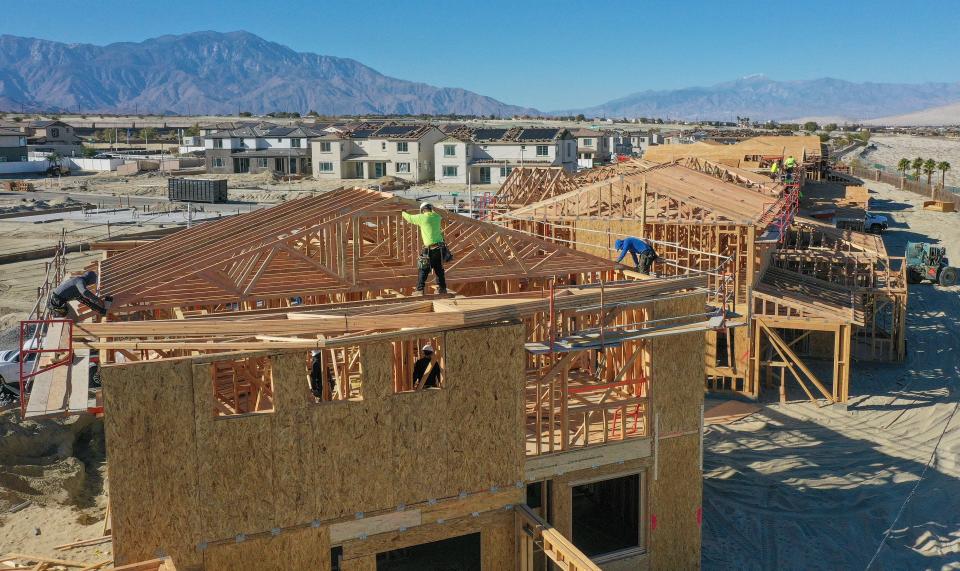Palm Desert sales tax hike could go on the ballot in November; council yet to decide

As Palm Desert faces a future with fast-rising costs for city services projected to outpace growth in tax revenues, a proposed sales tax hike could be on the ballot in November. But the city council has yet to decide, and it isn't set to discuss the topic again until mid-2024.
The council discussed the possibility of a measure to raise the city’s general sales tax to 8.75% from 7.75% in May 2023, unanimously agreeing to have city staff gather public input and educate the community on the potential ballot measure.
The issue was discussed as costs for services “have risen tremendously in every area” after the COVID-19 pandemic, despite cost-cutting efforts such as freezing positions and deferring some maintenance, Veronica Chavez, the city’s director of finance, said in a council report at the time.
“Operating costs have consistently been rising at a faster pace than sustainable revenues,” Chavez wrote in May. “Based on current projections, unless a new revenue source is identified, the City faces substantial budget deficits and service reductions, jeopardizing the City’s essential services to the community in the foreseeable future. The City’s historic diligence in financial planning warrants taking action now to sustain service levels.”
The one-percentage-point increase — which represents a roughly 12.9% increase from the previous rate — would generate approximately $26 million in new revenue each year, according to city estimates.
While the report mentioned placing the resolution on the ballot for the March 2024 primary, the December deadline to do so passed without any vote from the council. But with the city continuing to gather community input on a potential sales tax ballot measure, it could still go before voters later this year, according to city spokesperson Thomas Soule.
“It is still possible that a ballot measure might be placed on the November 2024 ballot for voter approval,” Soule told The Desert Sun this week. “If that were to happen, we could see the topic resurface later this spring, possibly at one of the June 2024 Council meetings.”
Palm Desert currently receives a full percentage point of the state’s 7.75% sales tax, while other cities in the Coachella Valley have already raised their tax rates to a higher level. Cathedral City, Coachella, Indio and La Quinta currently have an 8.75% sales tax rate, while Palm Springs has the valley’s highest at 9.25%, after voters approved Measure D in 2017.
Why it matters

For now, Palm Desert’s financial outlook is “relatively stable,” due to the revenue recovery following the pandemic, according to the city’s finance director.
The city’s budget for the current fiscal year includes an estimated $75.5 million in revenues — with sales tax proceeds making up the largest share of any funds — and about $75.3 million in expenditures. The city’s general fund is projected to have roughly $118 million at the end of this fiscal year, with a large share of those funds earmarked for specific accounts.
More: Palm Desert council OKs $75M budget with surplus. But deficits loom, with talk of tax hike
But challenges are looming: Without additional revenue, city officials anticipate a deficit to emerge over the next few years, starting in the upcoming 2024-25 fiscal year: “… the magnitude of the projected deficit grows rapidly over the subsequent five years to an estimated ($16 million) by FY 2028/29,” Chavez wrote in last year’s report.
The report also outlines many of the council’s goals, including development of the city's fast-growing north end, community and regional parks, university development, business recruitment, broadband planning, public safety capital improvements and operational costs, active transportation projects, and redevelopment of the mall area.
“The cost of these unfunded needs is sizeable, and funding would need to come from a tax measure or another reliable funding source,” Chavez said.
Tom Coulter covers the cities of Palm Desert, La Quinta, Rancho Mirage and Indian Wells. Reach him at thomas.coulter@desertsun.com.
This article originally appeared on Palm Springs Desert Sun: Palm Desert sales tax hike could go on the ballot in November

